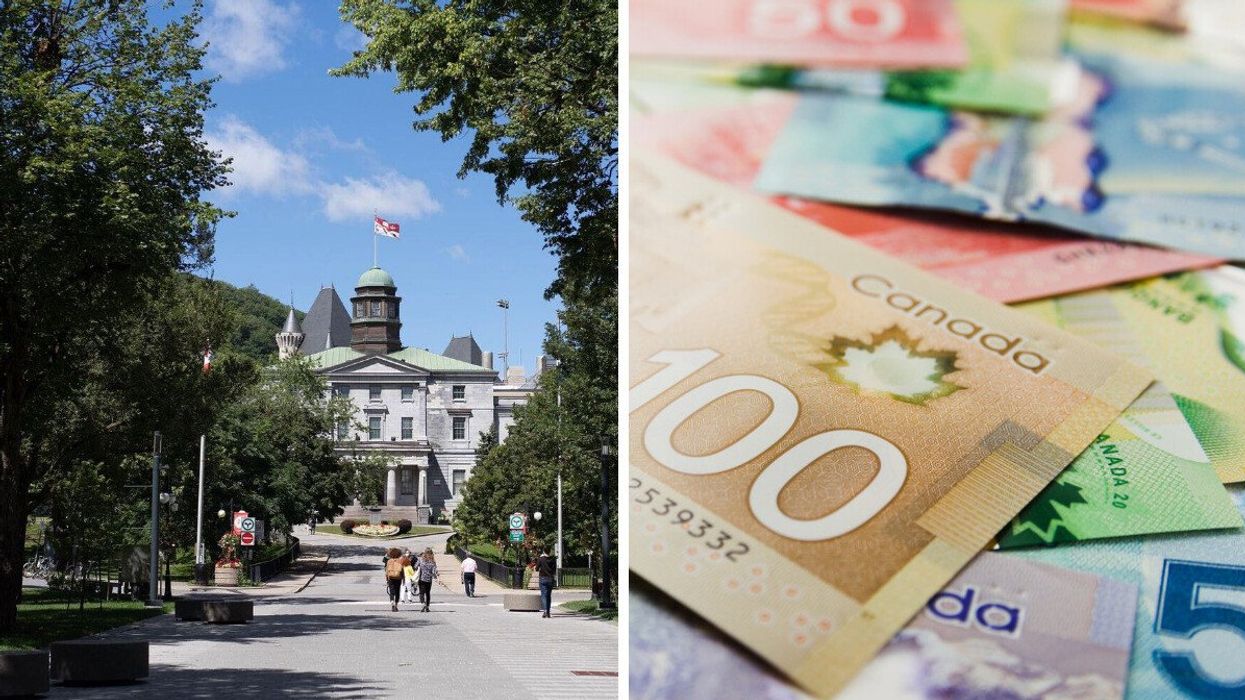Here's How The Federal Government Is Planning To Help Students Afford Post-Secondary Education
Changes to Canada Student Grants and RESPs could happen soon.

Students on the McGill University campus. Right: Pile of Canadian money.
Affording a post-secondary education can be difficult so the federal government is planning on introducing new ways to help students in Canada.
The new measures being proposed include changes to student grants and savings accounts so more money can get to the people who need it.
That's because "the higher cost of living still means that students still need support to afford an education" right now, the federal government said.
So, here are four ways the government wants to help make life more affordable for students that were announced as part of the federal budget for 2023.
Increasing Canada Student Grants
The federal government is trying to increase the amount of money from Canada Student Grants by 40%.
If this affordability measure gets approved, it would provide up to $4,200 for full-time students.
Students with disabilities and students with dependents would receive an increase in Canada Student Grants as well.
The federal government has doubled student grants over the last few years, which means full-time students could get up to $6,000 a year from Canada Student Grants.
Once the grant money you can get goes back to up to $3,000 for full-time students, the federal government wants to increase that amount by 40% — not the $6,000 you can get with the doubled grants.
Raising the interest-free Canada Student Loan limit
There are limits on the number of weeks students can receive financial aid and how much money is given out, which includes any payment-free or interest-free periods.
Now, the federal government is planning on raising the interest-free Canada Student Loan limit from $210 to $300 per week of study.
Waiving credit score screenings for mature students
Currently, mature students — aged 22 years or older — have to undergo a credit screening to qualify for federal student grants and loans for the first time.
But the federal government is proposing to waive that requirement so more people can get student aid.
Increasing limits on certain RESP withdrawals
The federal government is planning to make changes to the Registered Education Savings Plan (RESP), a savings account where parents can save money for their child's post-secondary education.
That includes increasing withdrawal limits on certain RESPs from $5,000 to $8,000 for full-time students and from $2,500 to $4,000 for part-time students.
There are more ways that students can get money from the government including the Canada Learning Bond and other federal benefits such as the student loan repayment tax credit and Climate Action Incentive payment.
Also, the federal government has proposed more ways to make life affordable for people in Canada as part of the 2023 budget.
That includes a new Tax-Free First Home Savings Account and a grocery rebate to help offset the cost of food.
This article's cover image was used for illustrative purposes only.
- The Federal Government Is Planning Changes To Student Grants & You Could Get Over $4,000 ›
- RESPs In Canada Are Set To Be Revamped & Here's What The Feds Want To Change ›
- Students In Canada Can Get Up To $2K From A Federal Benefit To Pay For Post-Secondary Education ›
- Post-Secondary Students In Canada Are Living At Home & Relying On Their Parents More Than Ever - Narcity ›